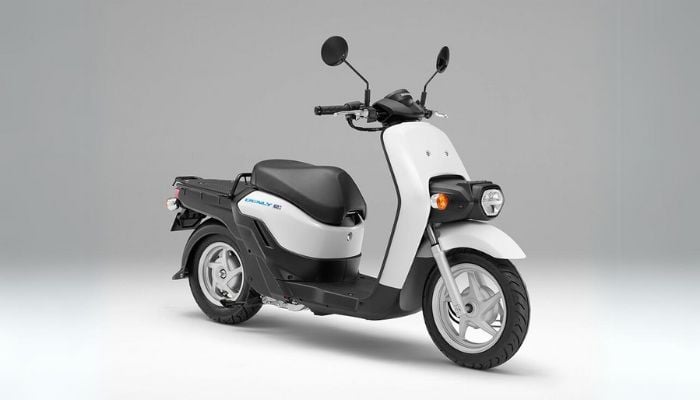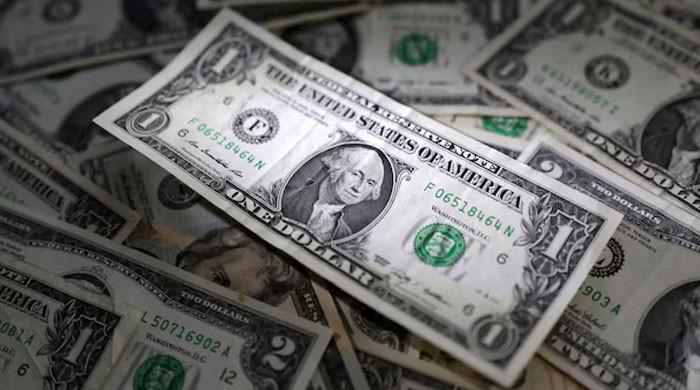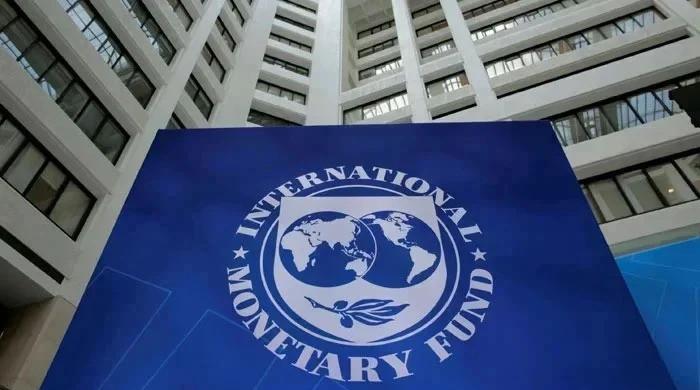Atlas Honda introduces first EV bike in Pakistan
Atlas Honda — one of Pakistan's largest motorcycle manufacturers — has unveiled company’s first EV motorcycle Honda ‘BENLY e’
November 28, 2023

Atlas Honda — one of Pakistan's largest motorcycle manufacturers — has unveiled the company’s first EV motorcycle Honda ‘BENLY e’, although it did not specify when it would be rolled out in the country.
In a statement issued Tuesday, the company said the launch took place at a ceremony held at Atlas Honda’s Sheikhupura Factory to commemorate Atlas Honda’s 60th year of operations in Pakistan.
Chief Officer of Motorcycle and Power Products of Atlas Honda Noriaki Abe, on the occasion, said that Honda BENLY e will be offered for test marketing while new products will be offered based on the market feedback so that society and customers get the best of what Honda has to offer.
“Honda products have become an essential part of the daily life of many in Pakistan,” said Abe, adding that the joint venture between Atlas Group and Honda Motor Company has been at the forefront of motorcycle and auto parts manufacturing since 1963.
Speaking during the same event, Executive Vice President and COO of Honda Motor Company Shinji Aoyama said that the mobility industry is going through a rapid transformation and “Honda Motor was well positioned for the future”.
Saquib H Shirazi, President and CEO of Atlas Honda, said that Atlas Honda has expanded its product line up and achieved localisation of up to 95%.
“The company developed the largest network of local auto parts manufacturers and dealers. With more than 10,000 touchpoints, the company has created direct employment opportunities for more than 150,000 people,” said Shirazi.
Atlas Honda Limited reported a 152% jump in its net profit for the first quarter of the fiscal year 2023-24, driven by a robust increase in sales and other income.
The motorcycle industry, which caters to the low-income segment of the population, suffered a decline in sales in October.
Motorcycle sales fell 5% month-on-month and 11% year-on-year in October.
Atlas Honda, the market leader, recorded sales of 90,000 units, down 5% month-on-month and 5% year-on-year.
In the first four months of the fiscal year, motorcycle sales fell 10% year-on-year to 371,000 units, due to higher bike prices and low purchasing power of consumers.
Challenges for EV bikes in Pakistan
Lack of charging infrastructure: There are not enough charging stations across the country to support the growing demand for EV bikes. The government needs to invest in the charging infrastructure and work with the private sector to attract investment.
High cost and low range: The EV bikes are still more expensive than the conventional bikes that run on petrol or diesel. The batteries are also costly and take a long time to charge. The range of the EV bikes is also limited, which means they cannot travel long distances without recharging.
Low awareness and acceptance: Many people in Pakistan are not familiar with the benefits of EV bikes and their environmental impact. The government needs to launch awareness campaigns to educate consumers and promote the adoption of EV bikes.
Inconsistent government policies: The EV policy in Pakistan is not clear and consistent. There are different incentives and regulations for different types of EVs and different sectors. The policy also needs to address the issues of taxation, standardisation, quality control, and safety of EVs.











